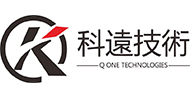The U.S. crackdown on Huawei has triggered a massive inventory backlog in the chip industry, and $22.8 billion in financial aid cannot fill the gap.
The U.S. crackdown on Huawei has triggered a massive inventory backlog in the chip industry, and $22.8 billion in financial aid cannot fill the gap.
"The restrictions imposed by the U.S. government on China have created a huge backlog of unsold products across the chip industry, and Washington's aid package to support the chip industry falls far short of what is needed to fill the gap," an analyst said, reuters reported.
One analyst said the U.S. government's restrictions on Chinawei had created a huge backlog of unsold products across the chip industry, while Washington's aid package to support the chip industry fell far short of what was needed to fill the gap.
Dan Hutcheson, chief executive of VLSI Research, told Reuters on Monday: "Beneath the surface, there is a huge inventory backlog. We see inventory levels for integrated circuits more typical than they were before the downturn. "
In early August, the Trump administration tightened restrictions on Huawei, barring suppliers from selling chips made using U.S. technology to Huawei without special permission.
Against the backdrop of an escalating trade war between China and the United States, the U.S. government is taking action to support the transfer of U.S. semiconductor companies and their manufacturing centers from the region.
The bill introduced by the U.S. Senate would provide more than $22.8 billion to domestic semiconductor manufacturers, but Dan Hutcheson says that's less than half the amount needed.
" (It's) really far less than the level of funding needed . . . $50 billion is more likely to achieve the desired results. Dan Hutcheson says.
He added that U.S. chip suppliers could see demand grow if the Trump administration's restrictions tighten supply in China.
"The bigger problem is that if they are excluded from the Chinese market, the doors of other countries are still open, " he said. "
Despite geopolitical influences, VLSI Research predicts that the global semiconductor industry will grow by 7% by 2020, as the "home office" economy triggered by the new crown outbreak drives demand for electronics.
Dan Hutcheson added, "The new crown outbreak has brought the economy to levels not seen since World War II." We think (the chip industry) will grow at an annual rate of 4% to 6% over the next few years. "


